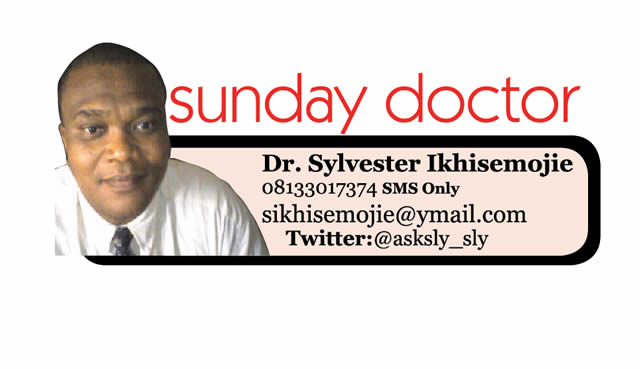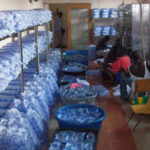
Visiting a newborn baby is an exciting and joyous occasion for friends and family members. Among my native Esan tribe, the arrival of a newborn is greeted with dancing and the application of native white chalk around the face and limbs. It is especially noteworthy when the newborn subject is male. This is a reflection of the patrilineal society which we all adore. The rubbing of the white chalk is surely not limited to members of the extended household alone, for the grandmother often goes about the neighbourhood with some chalk in a bowl which she offers to the womenfolk to join her in rubbing it and in celebrating the safe arrival of the baby. In most cases, the sheer joy at the arrival of a new life is taken to unsafe limits when its arrival from hospital is met with a steady stream of well-wishers. Such people mean no harm, but they do not know better and so, they keep on coming. However, given the vulnerability of newborns to infections and illnesses, it is crucial to take certain precautions to ensure the health and safety of the baby. In this comprehensive guide, we will discuss the essential precautions that should be taken when visiting a newborn baby. In the following paragraphs, therefore, we will discuss how this can be done safely.
One of the most important precautions when visiting a newborn is to wash your hands thoroughly before touching the baby. Use soap and water and scrub your hands for at least 20 seconds, making sure to clean under your nails and between your fingers. Alternatively, you can use hand sanitizer with at least 60 percent alcohol if soap and water are not available. In the wake of the last two epidemics to have afflicted our region, not to mention the world, we have hopefully learned some very important lessons about how to maintain basic hygiene. In homes where there is ample supply of safe and clean potable water, which may even be piped into indoor wash hand basins, this is not a problem to enforce. In the less privileged households where these utilities are absent, it may be wise to keep a bucket of clean water at the entrance into the room where a newborn baby is being cared for. If such a bucket has a lid, then the soap for washing the hands can be stored conspicuously on such a lid. That makes access to it easy. Secondly, please avoid visiting if you are sick. If you are feeling unwell, it is best to avoid visiting a newborn baby. Often, while the baby is still in the hospital, such visits are easy to control but that is less certain once the baby is home with the parents.
Even minor illnesses like a cold or flu can be dangerous for a newborn with their developing immune system. Wait until you are fully recovered before visiting the baby. Cover your coughs and sneezes into the bend of your elbow or better still, into a piece of tissue paper or a handkerchief. This helps to prevent the spread of germs to which the baby has limited resistance. This is also true even for the clothes you put on when you are going on a visit to a newborn. Before visiting the newborn, make sure to wear clean clothes. Avoid clothes that have been worn outside or in public places for an extended period, as they may carry germs and bacteria. If you start feeling unwell during your visit, it is best to excuse yourself and leave. Inform the parents that you are not feeling well to prevent the risk of spreading any illnesses to the baby. Besides, it is important to understand that newborn babies have irregular sleep patterns and feeding schedules. Be mindful of the baby’s routine and try to schedule your visit at a time that is convenient for the parents and the baby. However, the typical newborn is usually asleep for most of the day while staying awake at night. Due to the climate of insecurity governing our country, most visits necessarily have to be in the daytime. With the modern communication tools available, potential visitors can liaise well with the parents conveniently.
It is the responsibility of the parents, especially the mother and perhaps the grandmother, to limit the number of visitors who can stay with the baby per unit time. It is essential to limit the number of visitors during the first few weeks after the baby is born. Newborns are susceptible to infections, and too many visitors can increase the risk of exposure to germs. Coordinate visits with other members of the family to ensure that there are not too many people visiting at once. Accordingly, it is important that all prospective visitors respect the parents’ wishes in this regard. Every family has different preferences when it comes to visitors and their newborn. It is therefore important to respect the parents’ wishes regarding visiting hours, length of visits, and any special instructions they may have for visitors. Always ask the parents for permission before holding the baby. Wash your hands thoroughly, as discussed in the second paragraph, before touching the baby and make sure to support the baby’s head and neck when holding them. As you look into the baby’s face, it may be tempting to give the baby a kiss; it is best to avoid doing so, especially on the face and hands. Newborns have fragile immune systems, and kissing can transfer germs and viruses that the baby may not be able to fight off.
It is equally responsible and therefore advisable, to avoid the use of strong perfumes and colognes. Such strong scents from perfumes, colognes, or lotions can be overwhelming for a newborn baby. It is best to avoid wearing strong scents when visiting a newborn to prevent any potential irritation. The same goes for wearing clothes that have been preserved at the bottom of the box with camphor, a very present danger to the red blood cell structure of any newborn baby who has got an enzyme deficiency known as G6PD (Glucose-6-Phosphate Dehydrogenase deficiency).The lack of this enzyme causes the red blood cells to get destroyed at an abnormal rate leading to severe jaundice. In this connection, it is also useful to avoid smoking before visiting a newborn. This is because smoke residue can linger on your clothes and skin, which can be harmful to the baby’s delicate respiratory system by interfering with the development of the cilia in the respiratory tract and causing undue sensitivity in later life to particular substances. If you are visiting the new parents at home, offer to help with chores or tasks to make their lives easier. Simple gestures like doing the dishes, folding laundry, or preparing a meal can be greatly appreciated.
When interacting with the newborn, be gentle and cautious. Newborn babies are delicate and require gentle handling. Avoid rough play or sudden movements that may startle or harm the baby. Above all, avoid throwing young babies up because this frightens them a lot. As they grow a bit older, this act of play that a young infant may come to like can be harmful to them as it has the effect of tossing their brains around inside the skull. Also, you should avoid bringing young children along with you on a visit to a newborn especially if they are sick or have been recently exposed to illnesses. It is best to leave them at home. Young children are more likely to carry germs and viruses that can be harmful to the baby. If you are bringing food or drinks to the new parents, make sure they are prepared and handled hygienically. Avoid consuming food or drinks near the baby to prevent any accidental spills or contamination. Therefore, apart from washing your hands, practice good hygiene by ensuring that you are clean and healthy before visiting the baby. Avoid touching your face, especially your mouth and nose, to prevent the spread of germs just as we learned to do during the covid-19 pandemic or during the Ebola virus disease outbreak before that.
Overall, you have to remember that the first few weeks after the baby is born can be overwhelming for the parents, especially when the baby in question is their first child. Therefore, you must respect their privacy and give them space if they need time to rest or bond with the baby. The above advice is not exhaustive, but it is a useful guide.












